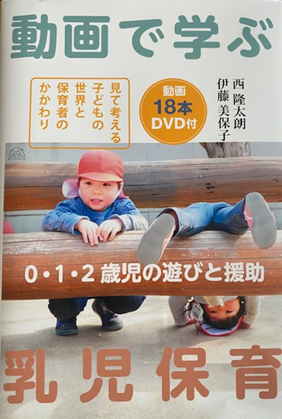The aim of this research was to examine and demonstrate the relevance of Kurahashi's philosophy to that of Friedrich Froebel and the modern Froebelian approach
Project summary
Sozo Kurahashi (1882-1955) is one of the pioneers in ECEC (Early Childhood Education and Care) in Japan. In this research, Ryutaro Nishi from Notre Dame Seishin University, aimed to examine and demonstrate the relevance of Kurahashi's philosophy to that of Friedrich Froebel and the modern Froebelian approach. Kurahashi started his career as a child psychologist and later worked as the principal of Ochanomizu Kindergarten. Established in 1876, this kindergarten has the longest history in Japan, and it has been playing an important role in developing ECEC in the country. Kurahashi developed his own ECEC philosophy and practice there. His humanistic approach involving deep respect for children continues to have a vast influence on Japanese ECEC research even today. Although Kurahashi was deeply influenced by Froebel and is often called the ‘Japanese Froebel’, his works are virtually unknown outside Japan.
In his research, Ryutaro Nishi examines the relevance of Kurahashi's thoughts to that of Froebel’s and aims to shed new light on the theoretical understanding and practical application of the Froebelian approach. The specific characteristics of Kurahashi's thought have contemporary relevance, not only in Japan but also in wider global discussions in ECEC. His insight into the mutually trusting relationships between children and parents and practitioners are seen as a forerunner to the concept of transference-countertransference relationships, which are studied through psychoanalytically oriented ECEC research today. Further, ‘the nurturing mind’, a key term in and the title of his most popular book, which reflects his attitude towards children, bears a striking similarity to the concept of ‘professional love’, a term that is gaining currency in today's discussions on ECEC relatedness.
Reviewing the relationship between the thoughts of Kurahashi and Froebel and examining its significance in today's ECEC theory and practice, Ryutaro Nishi aimed to deepen the understanding about the Froebelian approach in an unprecedented way, especially outside Japan.
Publications
Final report: The Froebelian approach and the philosophy of Sozo Kurahashi: The Japanese ECEC Pioneer
FT Final Report R Nishi Sept 2024
Journal article: 'Play has meaning in Life' published in 'Childhood Education'
Celebrating 100 Years of Dedication to Children’s Wellbeing. (2024). Childhood Education, 100(1), 3. https://doi.org/10.1080/000940...
Education and care through video (Play and guidance for children aged 0, 1 and 2 years) R Nishi & M Ito (2023)
Through the use of videos, the authors introduce the rich world of play that occurs in infants daily lives, and the sensitive responses of the educators working with them.


